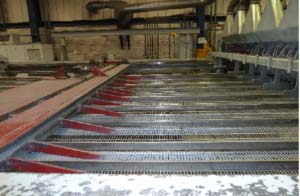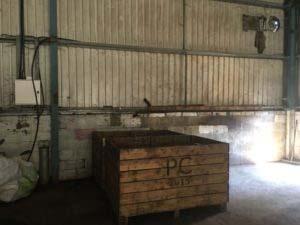Some Health & Safety Q&As

For a change this week. I thought that I might run a Health & Safety Q&A covering some of the questions that we, and other safety professionals get asked.
Topics covered included:
- Risk Assessments
- Is there a duty to warn in health & safety criminal law?
- Can you delegate health & safety criminal law duties to contractors?
- The PPE regulations.
- Using an expert on likelihood of harm.
- Whether group company turnover is taken into account for sentencing.
- CDM Regulations?
Some Health & Safety Q&As
The main issue in a Criminal Prosecution is whether the defendant has done everything that was reasonably practicable to protect safety. In many cases, conducting a suitable and sufficient risk assessment is a part of that expectation, so the prosecution can be defended if the defendant can show that they did all that was reasonably practicable by way of creating a suitable and sufficient risk assessment.
It is helpful to think of risk assessment in its widest sense; not just the document but whether everything reasonably practicable was done to assess a risk and guard against it. That means it is often a central factor in a prosecution
As an employer your company has duties under Health and Safety at Work Act section 2, towards employees and section 3 to others affected by your undertaking.
The section 3 duty applies to volunteers and is almost identical in scope to the duty to employees. However, it could be that the particular features of your volunteers (e.g. age, difficulty to get them to follow instructions or training) means the duties are higher. This is a particular concern for charities, which need specific advice.
Your duty is to do whatever is reasonably practicable for the safety of staff and others. The answer to the question ‘is a particular measure reasonably practicable’ will depend upon all the circumstances; this will include contract provisions, information given by the principal, relative levels of specialisation as between subcontractor and principal, the number of employees specified and the length of the subcontract.
But watch out if you consider that the principal has specified insufficient budget or manpower to do the job safely, in which case both the principal and the subcontractor risk prosecution
When the health and safety professional becomes aware of a past issue, that requires a duty to warn, then the expected behaviour by that professional will take into account their training, qualifications and workplace responsibilities.
The first answer is that the professional should record their concerns in writing addressed to management as appropriate. The harder question would be whether they should become a whistle-blower outside the organisation, potentially exposing them to allegations of breach of confidentiality. This needs careful consideration and advice, but it may be better to give that advice to management.”
T&Cs are just one part of successful delegation. In order to delegate health & safety criminal law duties to a contractor, you need to do everything reasonably practicable by way of selecting, providing information/instruction/training, monitoring and reviewing the contractor. Even then, HSE may regard some CDM duties as non-delegable
There can be prosecution under the HSWA for any employee or director, but also for volunteers and shareholders if their act or omission causes the organisation to commit an offence
The turnover boundaries for different sentencing tables in health & safety offences are: Micro < £2m; Small < £10m; Medium < £50m; Large £50m and over; Very Large ‘turnover very greatly exceeds £50m
There are no proposals available yet. All proposals for the CDM review in 2020 at the moment are purely speculative.
The Construction Industry Council and the Association for Project Safety (APS) are hosting an anonymous survey to gather feedback from across the industry ahead of the government consultation.
It is anticipated recommendations from Dame Judith Hackitt’s report will be incorporated into the review process
Generally and in accordance with the Personal Protective Equipment Regulations 2002 and Personal Protective Equipment at Work Regulations 1992 require, PPE should:
- be CE marked
- properly assessed before use to make sure it is fit for purpose;
- maintained and stored properly;
- provided with instructions on how to use it safely;
- used correctly by employees.
No, you must ensure employees are trained to use it properly and know how to detect and report any faults. Regulation 9 of The Personal Protective Equipment at Work Regulations 1992 requires that employers to enable the employee to know:
- The risk or risks which the personal protective equipment will avoid or limit;
- The purpose for which and the manner in which personal protective equipment is to be used; and
- Any action to be taken by the employee to ensure that the personal protective equipment remains in an efficient state, in efficient working order and in good repair
Face fit testing is required depending in the type of RPE equipment, but it’s not always mandatory. It depends on the equipment models, but for example if it is tight fitting such as a twin-filter respirator with welding visor, it would require face-fit.
For people with beards, as an employer you cannot demand they are cleanly shaven to allow for tight fitting RPE only. RPE is available in different sizes or as a hood version to allow for facial hair. You could also explore loose fitting RPE that would not require a face fit test.
In relation to competency level – RPE fit testing should be conducted by a competent person. Competence can be demonstrated through achieving accreditation under the Fit2Fit RPE Fit Test Providers’ Accreditation scheme. This scheme has been developed by the British Safety Industry Federation (BSIF) together with industry stakeholders and is supported by HSE. The scheme is not compulsory and you are free to take other action to comply with the law.
If LEV is in place, RPE could still be needed depending on the materials being welded, for example if LEV is unable to control fume capture then RPE is also required. This would be if Welding or hot cutting materials containing cadmium, or painted with lead or chromate paints where the coating can’t be removed. HSE guidance 153 provides further examples of when both extraction and RPE should be considered.
If you would like any further help or support, please please contact us by phone 01458 253682, email or via our Facebook page or by Twitter.
Taunton & Somerset CPD Group at The Exchange House Taunton
Please remember that we now run these CPD events at the Exchange House, 12 – 14 The Crescent, Taunton TA1 4EB on a fortnightly basis
The next of the CPD events is listed below.
As previously requested, if you could let us know whether or not you can attend it would be greatly appreciated. Also, if you would like to give a talk, or know of somebody who would, please contact Jon at [email protected]
Our next Seminar will be on Wednesday 25th September 2019.
Could you please arrive by 12:30pm prompt.
Our speaker for this one is Alistair Moore of Giacomini will talk about Underfloor Heating
If you haven’t already booked your place, or if you are not on the CPD Seminar mailing list but would like to be please drop Jon an email and he will deal with your request.
As per our last one if you could let Jon know whether or not you can attend within 7 days of receipt of his email, it would be greatly appreciated.
Contact Details [email protected] 07831 714199 or 01458 253682
For more details about these and the other forthcoming CPD talks please see: cpds for Sept/ Oct/ Nov & Dec 2019
Please Note: These will commence again 25th September NOT 11th as previously listed
Save Money on Your Online Training
If you are a company that will need quite a few of your staff trained using these courses, you may want to take advantage of the fact that you can pre-buy the training credits at a bulk rate.
This will allow you to buy the credits at a discounted rate to be used at your convenience. There is no limit on the time it takes to use the credits and 1 credit = 1 training course.
For companies that know they will need over 5 in a year but not all at the same time this automatically starts reducing your costs.
To buy in bulk simply click on the bulk credits button and purchase the number you will require. Once you have paid for your courses you can utilise them at your leisure and fit them into your staff training requirements.
If you have any questions, please contact us and we will be happy to advise.
What is the cost of these courses?
Companies will be able to buy credits. Each of these credits will allow 1 allocated person access to 1 course. The cost of these credits will reduce based on the number of credits purchased. See pricing chart below:
| No of credits | 1-5 | 6-10 | 11-20 | 21-30 | 31-40 | 41-50 | 51-75 | 76-100 | 101-150 | 151-200 | 201-250 |
|---|---|---|---|---|---|---|---|---|---|---|---|
| Cost of credit | £19.99 | £17.99 | £16.99 | £15.99 | £14.99 | £13.99 | £12.99 | £11.99 | £10.99 | £9.99 | £7.99 |
Remember – There is no limit on the time it takes to use the credits
Worker’s leg crushed in welding machine
A manufacturing company has been fined for safety breaches after a worker was severely crushed while fault finding on a mesh welding machine.
Leeds Magistrates’ Court was told that on 26 January 2016 an employee at Siddall and Hilton Products Ltd was injured while assisting a colleague on the GRS 144 welding machine at the company’s Brighouse premises.
To identify a faulty wire on the machine, the worker opened the interlocked gate which stopped the machine and climbed on top of the PV (the part of the machine that creates the mesh from the welded materials).
To release the wire the weld head needed to be lifted. To do so, his colleague exited and restarted the machine. As the machine was in automatic rather than manual mode, the PV immediately continued travelling towards the weld head, trapping the worker’s lower left leg. He suffered double compound fractures of his tibia and fibula. He was taken immediately to hospital where he had surgery and has since required further surgery to fuse his ankle in November 2018.
Investigating, the HSE found the company failed to implement robust isolation procedures as part of a safe system of work for entry into and out of the machine’s hazard zones.
Siddall and Hilton Products Ltd of Foundry Street, Brighouse, West Yorkshire pleaded guilty to breaching Section 2 (1) of the Health and Safety at Work etc Act 1974. The company has been fined £16,000 and ordered to pay costs of £4,831.45.
After the hearing, HSE Inspector Jackie Ferguson commented:
“Maintenance and breakdowns are often the most hazardous and poorly controlled area of work.
“If a suitable safe system of work had been in place prior to the incident, the life changing injuries sustained by the employee could have been prevented.”
Fine after apprentice fell from forklift truck
An employee has been fined after an apprentice suffered serious injuries when he fell from a potato box lifted by a forklift truck.
On 30 July 2018, Mr Francis Yardy used a forklift truck with an attached potato box to lift an apprentice electrician to a height of four metres to carry out electrical repairs at a potato storage warehouse near Ely. This was inherently unstable and the apprentice fell to the floor. The apprentice was admitted to hospital and sustained a punctured lung and broken ribs.
The HSE’s investigation found the apprentice’s employer had carried out a risk assessment and purchased suitable equipment for work at height, but that this was not used by the employee in charge of work at the site.
Mr Francis Yardy of Regent Avenue, March, Cambridgeshire pleaded guilty to breaching Section 7 of the Health and Safety at Work etc Act 1974 and was fined £2,000 with costs of £560.40.
Speaking after the hearing, HSE Inspector Graeme Warden said:
“Unfortunately, forklift trucks are frequently used with potato boxes or pallets attached to lift people to work at height. This incident serves as a reminder of the potentially disastrous consequences.”
Remember
Unlike other organisations who send out newsletters giving you a little titbit of information, then stating that if you want to follow the full link or read the full story or get more information you must pay to subscribe to their service.
- Our newsletter service is FREE,
- The links we supply are FREE,
- The helpline advice is FREE.

If you find this newsletter service of use and you think others might also find it useful, then kindly pass it on and ask them to subscribe for free, so they can continue to receive it in their own right.
Also contact us if you have a particular health and safety subject or question you would like covered
If you have any queries on any health and safety matter, please contact Jon Wilkins on 01458 253682 or by email on [email protected]


